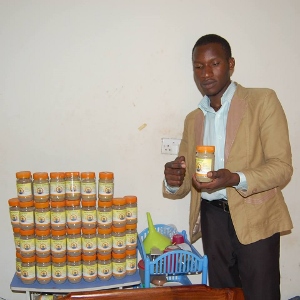
Dec 4, 2017 | Focolare Worldwide
 Masaka, Kampala, Entebbe and great Lake Victoria – this is the wide territory that Henry has covered in his country, Uganda, the “pearl of Africa.” He’s gone from the village where he was born, to his economic studies at university in the capitol, to the shores of the largest lake on the continent. It is so large that it counts more than 3,000 islands. This is where the White Nile begins, which then flows into the longest river in Africa, the Nile. Everything is big in Uganda: the parks, the impenetrable forests, the nature reserves. Henry dreams big too. “At Masaka, where I went to university, I noticed how people didn’t have time to cook anymore,” he says. To resolve the problem, Henry started a business to produce meat and fish products. At just 24, together with two others his age, he started the Sseruh Food Processing Company Ltd. in Entebbe. On the other side of the world, in Argentina, another entrepreneur, Gonzalo Perrin, had already started a company some years ago: Pasticcino, which produces cookies for a number of cafeteria chains and coffee roasters. Urged on by the spirit of the Economy of Communion, Perrin moved to the Soladaridad industrial park at Mariapolis Lia, a little city of the Focolare. There he promotes a culture marked by the values of reciprocity, care for the disadvantaged and the environment.
Masaka, Kampala, Entebbe and great Lake Victoria – this is the wide territory that Henry has covered in his country, Uganda, the “pearl of Africa.” He’s gone from the village where he was born, to his economic studies at university in the capitol, to the shores of the largest lake on the continent. It is so large that it counts more than 3,000 islands. This is where the White Nile begins, which then flows into the longest river in Africa, the Nile. Everything is big in Uganda: the parks, the impenetrable forests, the nature reserves. Henry dreams big too. “At Masaka, where I went to university, I noticed how people didn’t have time to cook anymore,” he says. To resolve the problem, Henry started a business to produce meat and fish products. At just 24, together with two others his age, he started the Sseruh Food Processing Company Ltd. in Entebbe. On the other side of the world, in Argentina, another entrepreneur, Gonzalo Perrin, had already started a company some years ago: Pasticcino, which produces cookies for a number of cafeteria chains and coffee roasters. Urged on by the spirit of the Economy of Communion, Perrin moved to the Soladaridad industrial park at Mariapolis Lia, a little city of the Focolare. There he promotes a culture marked by the values of reciprocity, care for the disadvantaged and the environment.
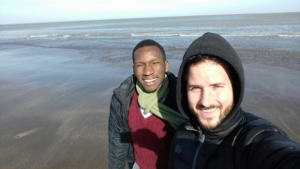
Henry Sserugo and Gonzalo Perrin

Henry shows the fish products of the Sseruh Food Processing Company Ltd
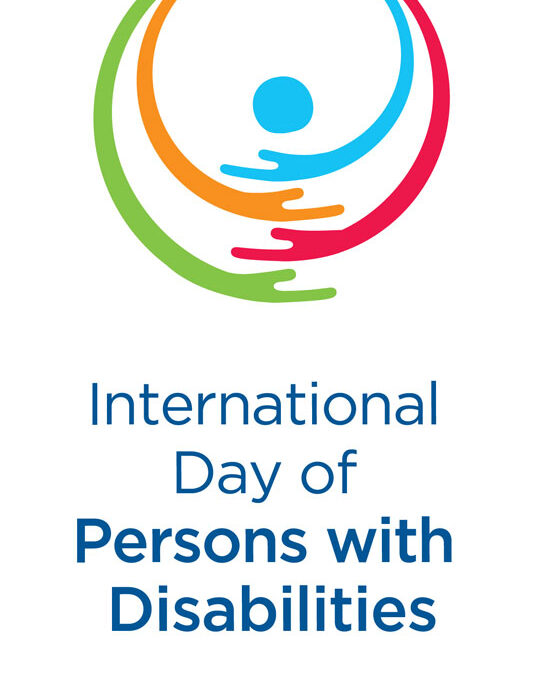
Dec 3, 2017 | Non categorizzato
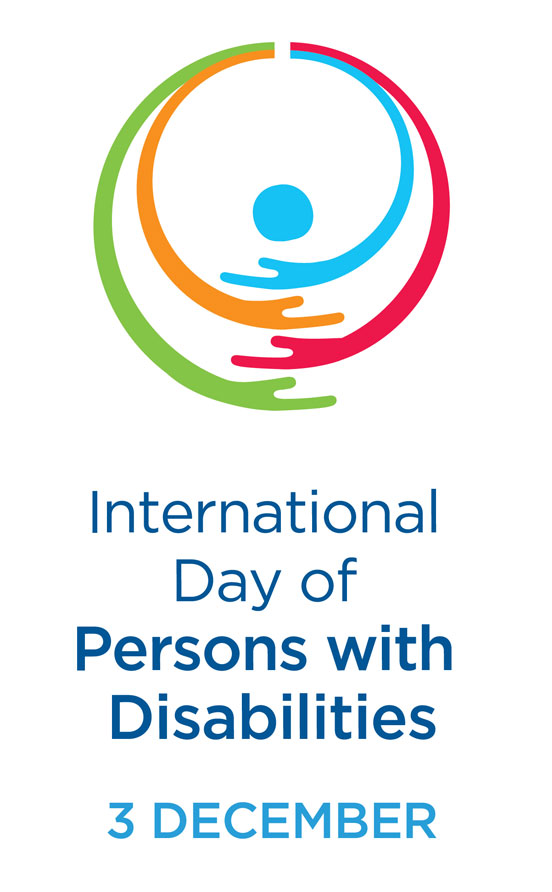 Established in 1981, the International Day of Persons with Disabilities is celebrated every year on 3 December, with the aim of encouraging and promoting a more widespread and in-depth knowledge on issues concerning differently-abled people, supporting full integration in all areas of life and removing all forms of discrimination and violence. Since July 1993, December 3 has also become the European Day for Persons with Disabilities, on the initiative of the European Commission and in agreement with the United Nations. To celebrate this Day, many countries will organise events in different areas of social life: in the field of education and work, urban planning and the development of new technologies geared towards differently-abled persons, as well as tourism accessible to the elderly.
Established in 1981, the International Day of Persons with Disabilities is celebrated every year on 3 December, with the aim of encouraging and promoting a more widespread and in-depth knowledge on issues concerning differently-abled people, supporting full integration in all areas of life and removing all forms of discrimination and violence. Since July 1993, December 3 has also become the European Day for Persons with Disabilities, on the initiative of the European Commission and in agreement with the United Nations. To celebrate this Day, many countries will organise events in different areas of social life: in the field of education and work, urban planning and the development of new technologies geared towards differently-abled persons, as well as tourism accessible to the elderly.
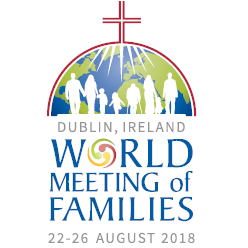
Dec 2, 2017 | Non categorizzato
 Dublin, the capital of Ireland, will host the 9th World Meeting of Families, an initiative inaugurated by St. John Paul II in 1994, and since then held every three years in different international seats. The theme chosen for Dublin is “The Gospel of the Family: joy for the world.” Further to the two recent Synods on the family (2014-15) and the apostolic exhortation, Amoris Laetitia (2016) of Pope Francis, families and those who engage in “family” issues are looking forward to this event which will give prominence to the Christian family and its specific gift of being “joy for the world” and light in the challenges contemporary life poses. The event is being promoted by the new Pontifical Council for the Laity, Family and Life. Alberto and Anna Friso of the Focolare who work with this organization will also attend. But it is the host diocese that is preparing for the meeting with great passion, and has already set in motion a mighty organisational machine for the outlining of the programme, logistics, preparatory catechesis, and reception of participants. Also the Irish ”new families” are full of enthusiasm, and have relayed their willingness to collaborate in all ways with the organizational team created for this purpose by the diocese. During those days they will be happy to welcome to their country, the greatest number of ”new families” possible from all over the world, to live unforgettable moments of in-depth studies, communion and celebrations. Official website Program For info and registrations
Dublin, the capital of Ireland, will host the 9th World Meeting of Families, an initiative inaugurated by St. John Paul II in 1994, and since then held every three years in different international seats. The theme chosen for Dublin is “The Gospel of the Family: joy for the world.” Further to the two recent Synods on the family (2014-15) and the apostolic exhortation, Amoris Laetitia (2016) of Pope Francis, families and those who engage in “family” issues are looking forward to this event which will give prominence to the Christian family and its specific gift of being “joy for the world” and light in the challenges contemporary life poses. The event is being promoted by the new Pontifical Council for the Laity, Family and Life. Alberto and Anna Friso of the Focolare who work with this organization will also attend. But it is the host diocese that is preparing for the meeting with great passion, and has already set in motion a mighty organisational machine for the outlining of the programme, logistics, preparatory catechesis, and reception of participants. Also the Irish ”new families” are full of enthusiasm, and have relayed their willingness to collaborate in all ways with the organizational team created for this purpose by the diocese. During those days they will be happy to welcome to their country, the greatest number of ”new families” possible from all over the world, to live unforgettable moments of in-depth studies, communion and celebrations. Official website Program For info and registrations
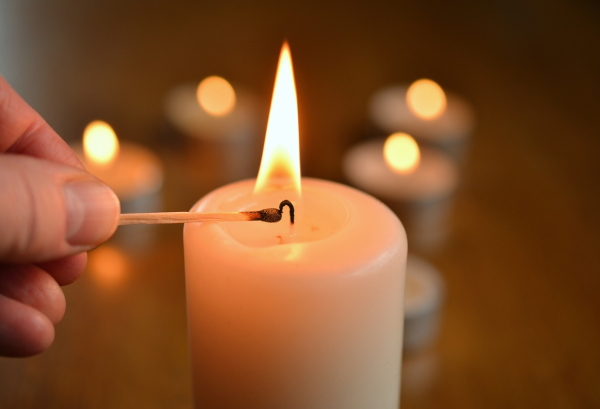
Dec 2, 2017 | Non categorizzato
 Since Christmas is considered by most as one of the grand feasts, more sumptuous than sacred, it would be important to reflect on some of the theme aspects of this event, due to which the history of the world was cut into two sections, pre- and post-. Given the infinite importance of such an event, one would expect it to dawn amid grandeur, triumph, sounds and shots, with manifestations of power and the flow of millions of curious people. There is an abysmal contrast between the birth of a powerful figure, as the ancient world dreamt of and the obscure birth of Jesus, ignored by many; it is a contrast which in itself characterises the infinite originality of a Christ-king born of a poor woman in a stable. He really does not seem to be God and neither the most showy of men, but the last among them, immediately set at the most fearful level of degradation. He appears on the lowest rung of the social ladder, in order to immediately see from below all the human beings, and to be able to see with the eyes of the miserable. The start of his revolution does not foresee arrogance, but humility, to draw the sons of God to heaven, starting from those who ate and slept on the ground: the slaves, the jobless, the foreigners, and the scum. Liberty and love were born with that infant: his liberty is liberty of love. This is the immense discovery. Universal love that he taught aims to disperse a system of coexistence made up mostly of political power, abuse of authority, idle usury, despise for work, degradation of woman, and corrosive envy. Logically, for the people embedded in such system that announcement is a folly: good for the prison and the gallows. Blessed are the poor and those who make themselves poor to help the miserable… Just imagine the fury of those who consider money as the utmost good… “It was said to the elders: do not kill. But I say to you; whoever rages against his brother will be judged…” The maxim seemed, and still seems detrimental to the honour of the warfarers and the warfaring industries, while not hating one’s brother means putting an end to brawls, factions and violence. The maxim would picture society as a peaceful coexistence where, instead of shouting and shooting, the people would laugh and eat. Life, in peace, would allow us to make every day, Christmas. And this is the revolution of Christ: to make us be reborn continually against the curse of death. And so the utmost commandment is to love man, which is like loving God. Love the other to the point of giving one’s life for him. This in brief is the meaning of Christmas: a review of the past, and the end of wars, torbid passions, and avarice; the start of universal love which admits no divisions of race, castes, classes, politics…. With his life and death Jesus preached and taught life. And so Christmas can be celebrated also with cake, if it helps to create love, but is celebrated above all with reconciliation, that puts an end to the diseases of the spirit and gives health. It is celebrated in gratitude to Jesus and Mary, who suffered to teach us and help us put an end to our suffering. Igino Giordani, Christmas as a revolution, New City, Rome 1974, n.24, p.18
Since Christmas is considered by most as one of the grand feasts, more sumptuous than sacred, it would be important to reflect on some of the theme aspects of this event, due to which the history of the world was cut into two sections, pre- and post-. Given the infinite importance of such an event, one would expect it to dawn amid grandeur, triumph, sounds and shots, with manifestations of power and the flow of millions of curious people. There is an abysmal contrast between the birth of a powerful figure, as the ancient world dreamt of and the obscure birth of Jesus, ignored by many; it is a contrast which in itself characterises the infinite originality of a Christ-king born of a poor woman in a stable. He really does not seem to be God and neither the most showy of men, but the last among them, immediately set at the most fearful level of degradation. He appears on the lowest rung of the social ladder, in order to immediately see from below all the human beings, and to be able to see with the eyes of the miserable. The start of his revolution does not foresee arrogance, but humility, to draw the sons of God to heaven, starting from those who ate and slept on the ground: the slaves, the jobless, the foreigners, and the scum. Liberty and love were born with that infant: his liberty is liberty of love. This is the immense discovery. Universal love that he taught aims to disperse a system of coexistence made up mostly of political power, abuse of authority, idle usury, despise for work, degradation of woman, and corrosive envy. Logically, for the people embedded in such system that announcement is a folly: good for the prison and the gallows. Blessed are the poor and those who make themselves poor to help the miserable… Just imagine the fury of those who consider money as the utmost good… “It was said to the elders: do not kill. But I say to you; whoever rages against his brother will be judged…” The maxim seemed, and still seems detrimental to the honour of the warfarers and the warfaring industries, while not hating one’s brother means putting an end to brawls, factions and violence. The maxim would picture society as a peaceful coexistence where, instead of shouting and shooting, the people would laugh and eat. Life, in peace, would allow us to make every day, Christmas. And this is the revolution of Christ: to make us be reborn continually against the curse of death. And so the utmost commandment is to love man, which is like loving God. Love the other to the point of giving one’s life for him. This in brief is the meaning of Christmas: a review of the past, and the end of wars, torbid passions, and avarice; the start of universal love which admits no divisions of race, castes, classes, politics…. With his life and death Jesus preached and taught life. And so Christmas can be celebrated also with cake, if it helps to create love, but is celebrated above all with reconciliation, that puts an end to the diseases of the spirit and gives health. It is celebrated in gratitude to Jesus and Mary, who suffered to teach us and help us put an end to our suffering. Igino Giordani, Christmas as a revolution, New City, Rome 1974, n.24, p.18
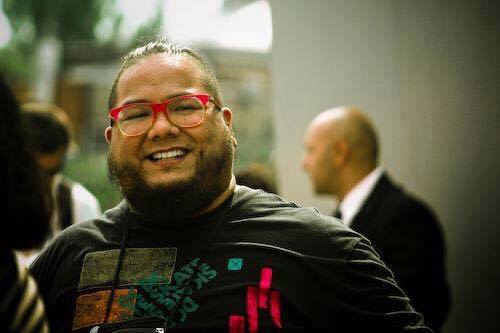
Dec 1, 2017 | Non categorizzato
 He was a graphic artist, who left his mark. He had a preference for masters such as Michelangelo and Gaudì, and was precociously talented in free hand. He created his own personal style based on his knowledge of the grand masters from the past. Emmanuel, who was known to everyone as Noel, worked closely with the young people from his city, bringing his brightness, inventiveness and creativity the preparations of the 2018 Genfest that will bring together 10,000 young people from around the world. On September 2nd he fell asleep and never woke up, due to sleep apnea. More than an grown up, he was considered a peer by the teenagers and young people from the Focolare Movement in the Philippines who are now counting on his help to carry on. Grace, Paul, Lela, Paula, Edith and other friends of his write. “He gave of himself without holding back and without expecting anything back. Always on the move from when he was a small child. At the age of two he attended his first Mariapolis and climbed the walls even during the meetings.” He was generous by nature. At the age of six he had given away a pair of shoes that had just been bought for him to a clothing drive for the victims of a wildfire that had devastated a certain region. When he was asked why he did that, he replied: “I saw Jesus in those people.” During his early school years Noel met a lot of difficulty. When a doctor discovered the medical cause – a problem with his eyesight – Noel candidly confessed that he had never told his parents because he didn’t want to worry them. His family moved to another location, and Noel and his brother placed a poster on the front door, “Friends Wanted.” Then they went knocking on the doors of their neighbours, trying not to be too pushy. As an adult Noel was very esteemed by his colleagues and employers. He was simple-hearted and sociable, but also trustworthy and precise, respectful of work hours. He was forgiven when, because of a disorder he suffered from during the night hours, if he sometimes suddenly fell off to sleep and spilled his coffee on the keyboard of the computer. He was always available for the projects of the Focolare youth. Any time they needed a drawing or a project, he was always willing to place his talent at their disposal. He was the drummer for a Gen band from the time he was a boy. He certainly wasn’t the best drummer on the square and, when he was there, the band never worried too much about being perfect, but only about playing with their hearts. Agnes, from the band, recalls how, for him, the “togetherness” was what mattered and not so much making an appearance. He put the same attention into his relationships with people. Noel arrived in Loppiano, Italy, for the Gen School in 2004. He was one of the few that had a driver’s license and became the driver for everyone, even at night when needed after a long day of work. He became a point of reference for many young people when he went back to his own country. Whether or not he realized it, he encouraged them and motivated them not to give up, but to persevere, to hope and follow God. “When it comes to love,” he would often say, “you need to give everything, especially when you’re able to give it.” Noel was always at his mother’s side, protective of his sisters and close to his brother even when he left the country. He never wanted to see unhappy people around him. A friend, teacher and gentle giant. A person who’s left his mark. That’s Noel for us. He was 38 years old, but he didn’t want to get old. Now he’ll be forever young.”
He was a graphic artist, who left his mark. He had a preference for masters such as Michelangelo and Gaudì, and was precociously talented in free hand. He created his own personal style based on his knowledge of the grand masters from the past. Emmanuel, who was known to everyone as Noel, worked closely with the young people from his city, bringing his brightness, inventiveness and creativity the preparations of the 2018 Genfest that will bring together 10,000 young people from around the world. On September 2nd he fell asleep and never woke up, due to sleep apnea. More than an grown up, he was considered a peer by the teenagers and young people from the Focolare Movement in the Philippines who are now counting on his help to carry on. Grace, Paul, Lela, Paula, Edith and other friends of his write. “He gave of himself without holding back and without expecting anything back. Always on the move from when he was a small child. At the age of two he attended his first Mariapolis and climbed the walls even during the meetings.” He was generous by nature. At the age of six he had given away a pair of shoes that had just been bought for him to a clothing drive for the victims of a wildfire that had devastated a certain region. When he was asked why he did that, he replied: “I saw Jesus in those people.” During his early school years Noel met a lot of difficulty. When a doctor discovered the medical cause – a problem with his eyesight – Noel candidly confessed that he had never told his parents because he didn’t want to worry them. His family moved to another location, and Noel and his brother placed a poster on the front door, “Friends Wanted.” Then they went knocking on the doors of their neighbours, trying not to be too pushy. As an adult Noel was very esteemed by his colleagues and employers. He was simple-hearted and sociable, but also trustworthy and precise, respectful of work hours. He was forgiven when, because of a disorder he suffered from during the night hours, if he sometimes suddenly fell off to sleep and spilled his coffee on the keyboard of the computer. He was always available for the projects of the Focolare youth. Any time they needed a drawing or a project, he was always willing to place his talent at their disposal. He was the drummer for a Gen band from the time he was a boy. He certainly wasn’t the best drummer on the square and, when he was there, the band never worried too much about being perfect, but only about playing with their hearts. Agnes, from the band, recalls how, for him, the “togetherness” was what mattered and not so much making an appearance. He put the same attention into his relationships with people. Noel arrived in Loppiano, Italy, for the Gen School in 2004. He was one of the few that had a driver’s license and became the driver for everyone, even at night when needed after a long day of work. He became a point of reference for many young people when he went back to his own country. Whether or not he realized it, he encouraged them and motivated them not to give up, but to persevere, to hope and follow God. “When it comes to love,” he would often say, “you need to give everything, especially when you’re able to give it.” Noel was always at his mother’s side, protective of his sisters and close to his brother even when he left the country. He never wanted to see unhappy people around him. A friend, teacher and gentle giant. A person who’s left his mark. That’s Noel for us. He was 38 years old, but he didn’t want to get old. Now he’ll be forever young.”
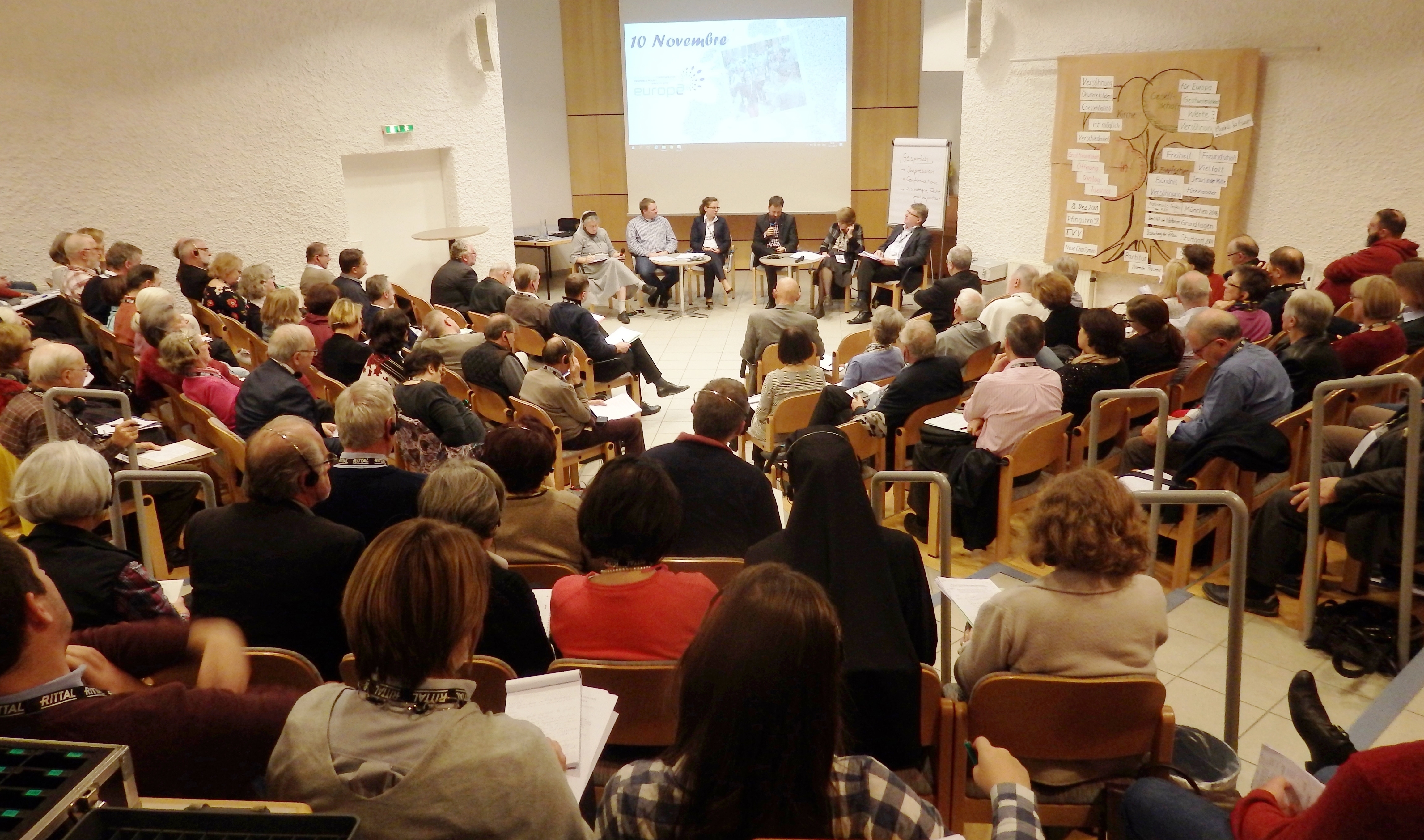
Nov 30, 2017 | Non categorizzato
 From 9th to 11th November 2017 in Vienna (Austria), the annual conference of ecumenical network Together for Europe (TfE) took place, with 130 participants from 44 Movements, Communities and Associations. Meetings, exchange of ideas, and moments of prayer, characterised the Conference’s program Fr Heinrich Walter (Schoenstatt Movement), Gérard Testard (Efesia, France), Gerhard Pross (YMCA Esslingen) spoke of the eighteen-year history of Together for Europe and its future challenges. “We say Yes to a Europe to which God has entrusted a vocation in the course of history: the togetherness of heaven and earth, of faith and shaping of the world: for heaven and earth meet in the crucified one.” Pál Tóth (Focolare Movement, Hungary), an expert in Communication Science, pointed out some differences between the Eastern/Central European countries and the West of Europe and put forward a daring proposal: “Together for Europe can increasingly become a platform for dialogue, or rather a school of inter-European dialogue.” One of the suggestions which emerged was to dedicate 9th May, when many countries celebrate Europe Day, as an event in which to spread the message of ‘togetherness’ through local actions. www.together4europe.org twitter.com/together4europe
From 9th to 11th November 2017 in Vienna (Austria), the annual conference of ecumenical network Together for Europe (TfE) took place, with 130 participants from 44 Movements, Communities and Associations. Meetings, exchange of ideas, and moments of prayer, characterised the Conference’s program Fr Heinrich Walter (Schoenstatt Movement), Gérard Testard (Efesia, France), Gerhard Pross (YMCA Esslingen) spoke of the eighteen-year history of Together for Europe and its future challenges. “We say Yes to a Europe to which God has entrusted a vocation in the course of history: the togetherness of heaven and earth, of faith and shaping of the world: for heaven and earth meet in the crucified one.” Pál Tóth (Focolare Movement, Hungary), an expert in Communication Science, pointed out some differences between the Eastern/Central European countries and the West of Europe and put forward a daring proposal: “Together for Europe can increasingly become a platform for dialogue, or rather a school of inter-European dialogue.” One of the suggestions which emerged was to dedicate 9th May, when many countries celebrate Europe Day, as an event in which to spread the message of ‘togetherness’ through local actions. www.together4europe.org twitter.com/together4europe
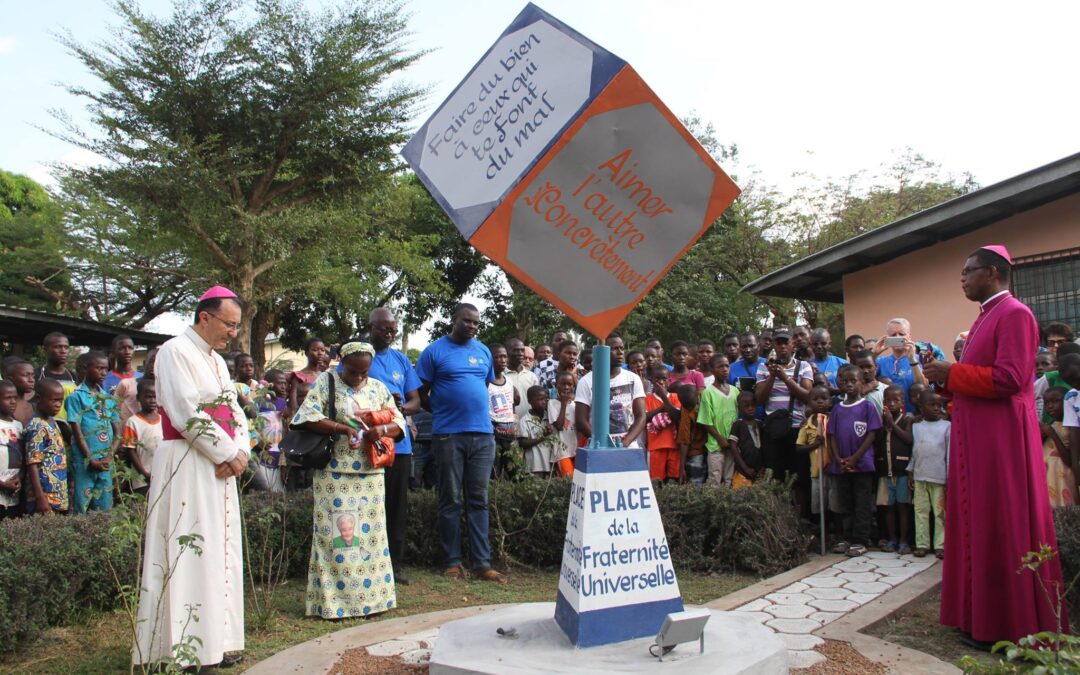
Nov 30, 2017 | Focolare Worldwide
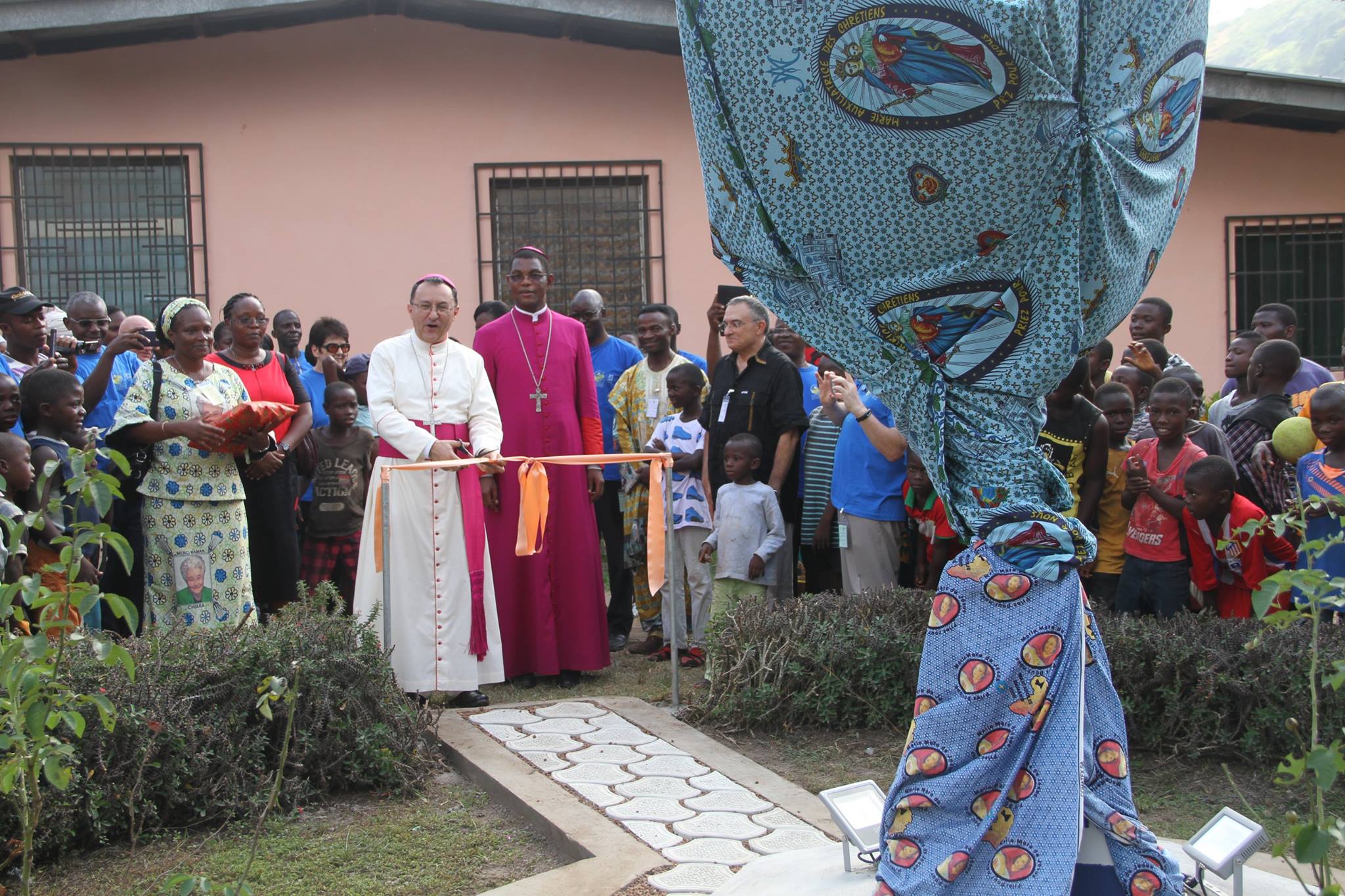 The blessing of Pope Francis unexpectedly reaches the citizens of Mariapolis Victoria, a small oasis of peace in the city of Man, Ivory Coast as it celebrates its Silver Anniversary. It arrived with a thank you for the work of evangelisation that has been carried out in that place.” Francis invited them to “persevere with courage in the service of unity and concord among people,” and to continue “along the path of an ever-more universal fraternity. This place is dotted with episodes of fraternity, beginning from the civil war of 2002-2003 when the locals decided to stay. Also the European focolarini, even though the local authorities urged foreigners to leave the country. It was a witness of loving their own to the end, of opening their doors to protect people, and 3,500 Muslims and Christians passed through those doors in those months. These were people who risked their lives, like Salvatore, Rino, Charles, put against the wall, ready to be shot: “All you can do now is pray!” they told them. But they managed to pull it off. Now the city and the country has turned the page, even if there isn’t complete political reconcilliation.
The blessing of Pope Francis unexpectedly reaches the citizens of Mariapolis Victoria, a small oasis of peace in the city of Man, Ivory Coast as it celebrates its Silver Anniversary. It arrived with a thank you for the work of evangelisation that has been carried out in that place.” Francis invited them to “persevere with courage in the service of unity and concord among people,” and to continue “along the path of an ever-more universal fraternity. This place is dotted with episodes of fraternity, beginning from the civil war of 2002-2003 when the locals decided to stay. Also the European focolarini, even though the local authorities urged foreigners to leave the country. It was a witness of loving their own to the end, of opening their doors to protect people, and 3,500 Muslims and Christians passed through those doors in those months. These were people who risked their lives, like Salvatore, Rino, Charles, put against the wall, ready to be shot: “All you can do now is pray!” they told them. But they managed to pull it off. Now the city and the country has turned the page, even if there isn’t complete political reconcilliation. 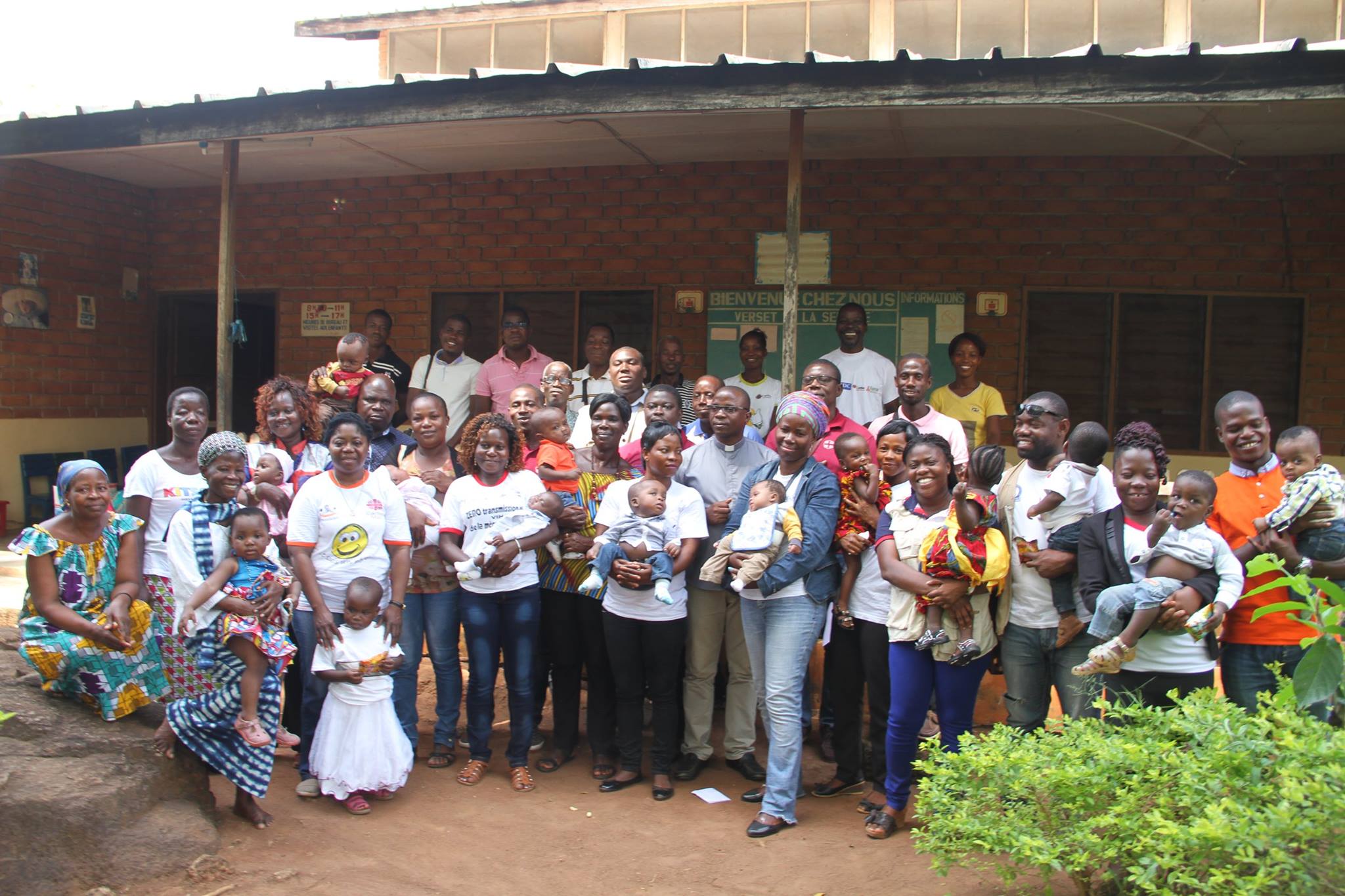 But Mariapolis Victoria is not only an oasis of peace in times of war. It is a social laboratory. During the three-day celebration in honour of the 25th anniversary, the focus was on facts and deeds. Visits to the activities of the town were on top of the schedule: the Medical Social Centre – renovated and enlarged, with emergency services and impatient hospital, a dental clinic, a physiotherapist – the nutrition centre where the wounds of infant malnutrition are cured, and mothers are taught nutritional care; the computer centre and more and more specialized courses – along with other entrepreneurial activities like carpentry and printing. A football tournament was held during the preparations for the 25th anniversary in the name of fraternity and fair play. On Sunday, November 19th the prizes were finally given to the winners, not only for the goals they gained, but also for the points they earned for fair play.
But Mariapolis Victoria is not only an oasis of peace in times of war. It is a social laboratory. During the three-day celebration in honour of the 25th anniversary, the focus was on facts and deeds. Visits to the activities of the town were on top of the schedule: the Medical Social Centre – renovated and enlarged, with emergency services and impatient hospital, a dental clinic, a physiotherapist – the nutrition centre where the wounds of infant malnutrition are cured, and mothers are taught nutritional care; the computer centre and more and more specialized courses – along with other entrepreneurial activities like carpentry and printing. A football tournament was held during the preparations for the 25th anniversary in the name of fraternity and fair play. On Sunday, November 19th the prizes were finally given to the winners, not only for the goals they gained, but also for the points they earned for fair play. 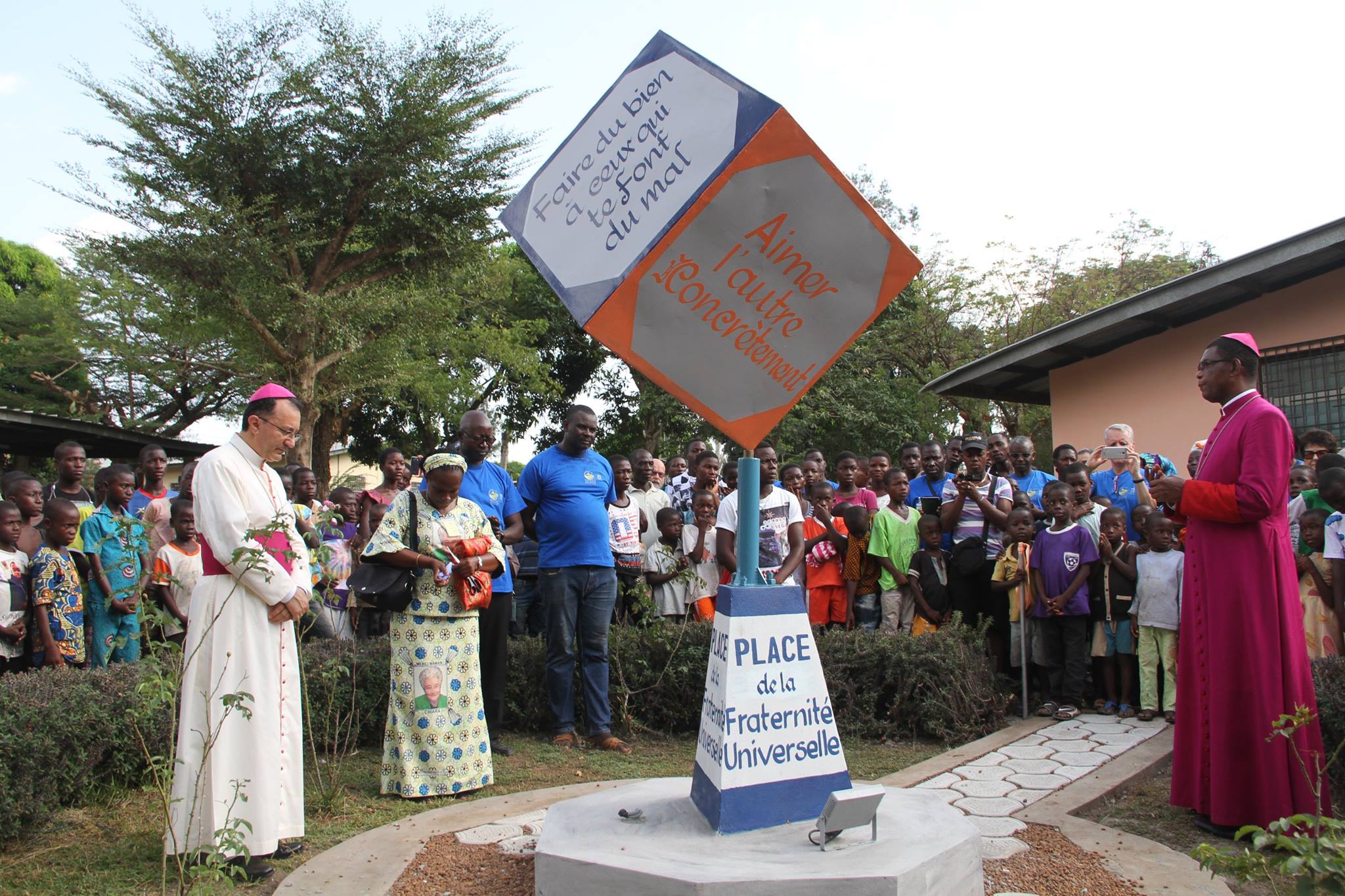 The placing of stele in “Universal Brotherhood Square was also quite symbolic, along with a large Cube of Peace that expresses the personal identity of the Mariapolis where love and respect for the other person tends to transfer onto every aspect of life in the little town. Official celebrations were also held at St Mary Queen of Africa Parish, which has been entrusted to the the Focolare Movement since 1970. Present with Apostolic Nunzio Joseph Spiteri and Bishop of Man, Gaspar Bebi Gneba, there were also numerous civil authorities: Vice-Prefect of Man, Madame Djerehe Claude and ex-Minister Mabri Toikeusse, who is also president of the regional chamber of the King of the Traditional Chiefs of the Tonpki, Gué Pascal. They expressed their recognition of the Ivorian authority for the help to people during the crisis and generally for the Focolare’s efforts in favour of the vulnerable populations. Also the Italian Ambassador, Stefano Lo Savio, wanted to attend and deliver a very warm message. Now we are looking ahead with three words to guide our steps: welcome, formation and attentiveness to the poor. Maria Chiara De Lorenzo
The placing of stele in “Universal Brotherhood Square was also quite symbolic, along with a large Cube of Peace that expresses the personal identity of the Mariapolis where love and respect for the other person tends to transfer onto every aspect of life in the little town. Official celebrations were also held at St Mary Queen of Africa Parish, which has been entrusted to the the Focolare Movement since 1970. Present with Apostolic Nunzio Joseph Spiteri and Bishop of Man, Gaspar Bebi Gneba, there were also numerous civil authorities: Vice-Prefect of Man, Madame Djerehe Claude and ex-Minister Mabri Toikeusse, who is also president of the regional chamber of the King of the Traditional Chiefs of the Tonpki, Gué Pascal. They expressed their recognition of the Ivorian authority for the help to people during the crisis and generally for the Focolare’s efforts in favour of the vulnerable populations. Also the Italian Ambassador, Stefano Lo Savio, wanted to attend and deliver a very warm message. Now we are looking ahead with three words to guide our steps: welcome, formation and attentiveness to the poor. Maria Chiara De Lorenzo
Nov 29, 2017 | Non categorizzato, Spiritualità, Word of
for ages 4-8 | for ages 9-17 | Print | Audio
A young woman is in her house in Palestine — a distant, little known corner of the powerful Roman Empire. Suddenly she receives an unexpected, rather disturbing visitor: a messenger from God, asking something of her and awaits her reply. “Rejoice!’’ the angel says to Mary. Then he reveals God’s abounding love for her, inviting her to collaborate in fulfilling God’s plans for humanity. With a sense of wonder and joy, Mary accepts the gift of this personal meeting with the Lord. She gives herself entirely to this yet-unknown plan because of her complete trust in God’s love. With her generous and wholehearted “Here am I”, Mary decisively puts herself at the service of God and people, giving a shining example of how to accept God’s will. “Here am I, the servant of the Lord; let it be with me according to your word (Lk 1:38).” Meditating on this Gospel passage, Chiara Lubich wrote in 1981: “To fulfil his plans, God needs people who surrender themselves to him as humbly and as readily as a servant. “Mary is the true representative of humanity, whose destiny she took on. With this attitude, she gives God all the space he needs for his creative action. “However, the term ‘servant of the Lord’ is not only an expression of humility, but also a title of nobility, given to the great servants in salvation history, like Abraham, Moses, David and the prophets.” “Therefore, by using these words, Mary also affirms her greatness.’’ “Here am I, the servant of the Lord; let it be with me according to your word (Lk 1:38).” We, too, can discover God’s presence in our lives and listen to the word he says to us, asking us to fulfil part of his design of love, part of his design of love for history, here and now. Our weakness and sense of inadequacy may hinder us. So let us believe the angel’s words, “for nothing will be impossible with God” (Lk 1:37), and trust in God’s power more than in our own strength. This experience will free us from our limitations and from presuming that we’re self-sufficient. We will find new energy and talents we did not know we had, enabling us to love in our own way. “Right at the start of our marriage,” shared one couple, “we opened our house to the families of children in our city’s hospitals. More than 100 families came to our house, and we continually tried to create a family atmosphere for them. “We often received providence, which helped us cover our expenses, but we needed first to be open to welcoming people. “Not long ago, we received some money and decided to put it on one side, being sure it would be useful for somebody. In fact, soon afterwards another request arrived. “It is all a game of love with God, and our part is just to be ready and play along.” “Here am I, the servant of the Lord; let it be with me according to your word (Lk 1:38).” Chiara’s words about accepting the Word of God as Mary did can help us live this phrase of the Gospel. “Being completely available, knowing that it is not merely human word … As it is the Word of God, it contains a presence of Christ. “So you can receive Christ, in his Word, within you. Then put it into practice actively and readily, moment by moment. “If you do this, the world will once again see Christ walking through the streets of our cities. Christ in you, clothed like everyone else. Christ at work in offices, schools and the most varied places; Christ amongst all.’’ Now that we are preparing for Christmas, let us find some time, as Mary did, to spend “one on one’’ with the Lord, perhaps by reading a page of the Gospel. Let us try to recognize his voice in our conscience, which will be enlightened by his Word. We will become more sensitive to the needs of the brothers and sisters we will meet. Let us ask ourselves, how can I be a presence of Jesus today? How can I contribute, where I am, to making all people one family? Saying ‘‘Here am I’’ to God will allow him to sow peace around us and increase the joy in our hearts. Letizia Magri
Nov 29, 2017 | Non categorizzato
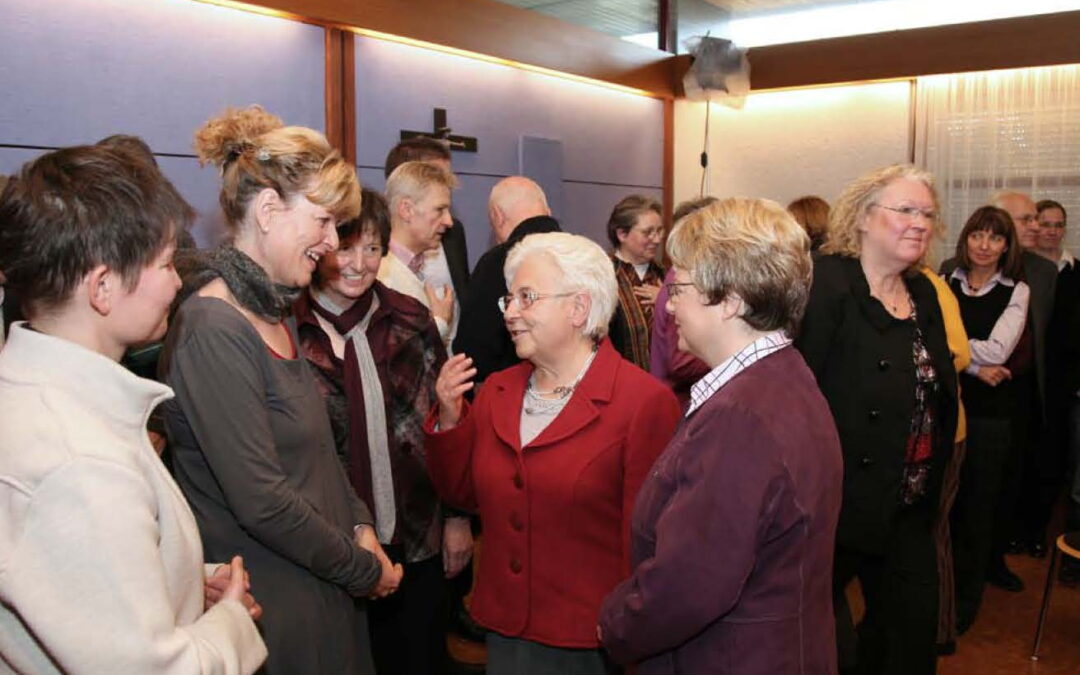
Nov 28, 2017 | Non categorizzato
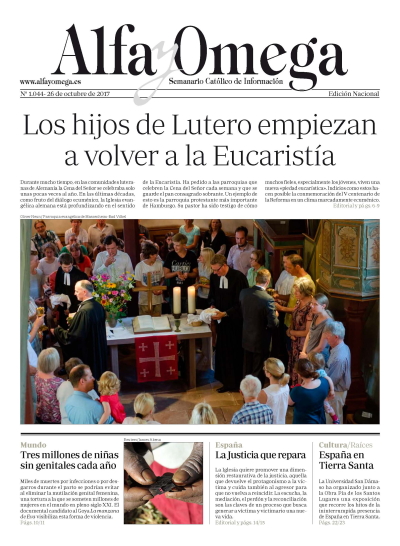 The keyword is “journey”, because “truth is sought through journeying”. Maria Voce, or Emmaus as she is known in the Focolare, became animated as she described Pope Bergoglio’s vision of ecumenism. Her eyes lit up when speaking about an ecclesial reality which truly has unity as its vocation. Such was the route undertaken by Focolare founder Chiara Lubich. It is one of the very few movements born in the Catholic Church which embraces the faithful of other churches. It is indeed a rarity in times of fragmentation. “I think that true Catholicism is what God perceives it to be: a gathering of communities each having their own identity. I imagine the moment will come, because it must come, when everyone will be one. Jesus asked for this. Therefore not just one Catholic Church: it could be Catholic in the sense of universal, but not a single Roman Church or a single Church of Constantinople.” Your words came across almost as a provocation. “Of course, they’re provocative!” Maria Voce replied. It was clear that in her “provocation” she felt supported by the Argentinean Pope. On 3 June, the last Sunday of Pentecost, the Pontiff convened the charismatic Catholic and non-Catholic movements. Before the meeting had even started, the Pope specifically asked for Maria Voce. A priest went looking for her and she joined the group of leaders sitting on the stage. At the end of his speech, the Pope approached her and, to her great surprise, took her by the hand: “Come, Maria …,” he said without adding anything else. And they left the assembly together. “From the first moment of his election, when he appeared on the balcony to greet the crowds and introduced himself as a Bishop and not as a Pontiff, I understood that it was already a sign of his ability to relate to other churches.” “Jorge Mario Bergoglio,” Maria Voce recalls, “had a living experience of ecumenism with other churches in Buenos Aires. Considering that time, Maria Voce identified the seed of what happened as a consequence during his pontificate, which reached its utmost expression with the Pope’s presence, almost a year ago, in commemorative celebrations held in Lund (Sweden) which marked the 5th centenary of the Protestant Reformation of Martin Luther. “Something immense happened in Lund, when two Church leaders at the same level of authority met and signed a joint statement.” The challenge is to follow the Pope’s example and join in the ‘spirit of Lund’. “If John Paul II will always be remembered for the ‘spirit of Assisi’, the present Pope should be remembered for the ‘spirit of Lund’.”
The keyword is “journey”, because “truth is sought through journeying”. Maria Voce, or Emmaus as she is known in the Focolare, became animated as she described Pope Bergoglio’s vision of ecumenism. Her eyes lit up when speaking about an ecclesial reality which truly has unity as its vocation. Such was the route undertaken by Focolare founder Chiara Lubich. It is one of the very few movements born in the Catholic Church which embraces the faithful of other churches. It is indeed a rarity in times of fragmentation. “I think that true Catholicism is what God perceives it to be: a gathering of communities each having their own identity. I imagine the moment will come, because it must come, when everyone will be one. Jesus asked for this. Therefore not just one Catholic Church: it could be Catholic in the sense of universal, but not a single Roman Church or a single Church of Constantinople.” Your words came across almost as a provocation. “Of course, they’re provocative!” Maria Voce replied. It was clear that in her “provocation” she felt supported by the Argentinean Pope. On 3 June, the last Sunday of Pentecost, the Pontiff convened the charismatic Catholic and non-Catholic movements. Before the meeting had even started, the Pope specifically asked for Maria Voce. A priest went looking for her and she joined the group of leaders sitting on the stage. At the end of his speech, the Pope approached her and, to her great surprise, took her by the hand: “Come, Maria …,” he said without adding anything else. And they left the assembly together. “From the first moment of his election, when he appeared on the balcony to greet the crowds and introduced himself as a Bishop and not as a Pontiff, I understood that it was already a sign of his ability to relate to other churches.” “Jorge Mario Bergoglio,” Maria Voce recalls, “had a living experience of ecumenism with other churches in Buenos Aires. Considering that time, Maria Voce identified the seed of what happened as a consequence during his pontificate, which reached its utmost expression with the Pope’s presence, almost a year ago, in commemorative celebrations held in Lund (Sweden) which marked the 5th centenary of the Protestant Reformation of Martin Luther. “Something immense happened in Lund, when two Church leaders at the same level of authority met and signed a joint statement.” The challenge is to follow the Pope’s example and join in the ‘spirit of Lund’. “If John Paul II will always be remembered for the ‘spirit of Assisi’, the present Pope should be remembered for the ‘spirit of Lund’.”
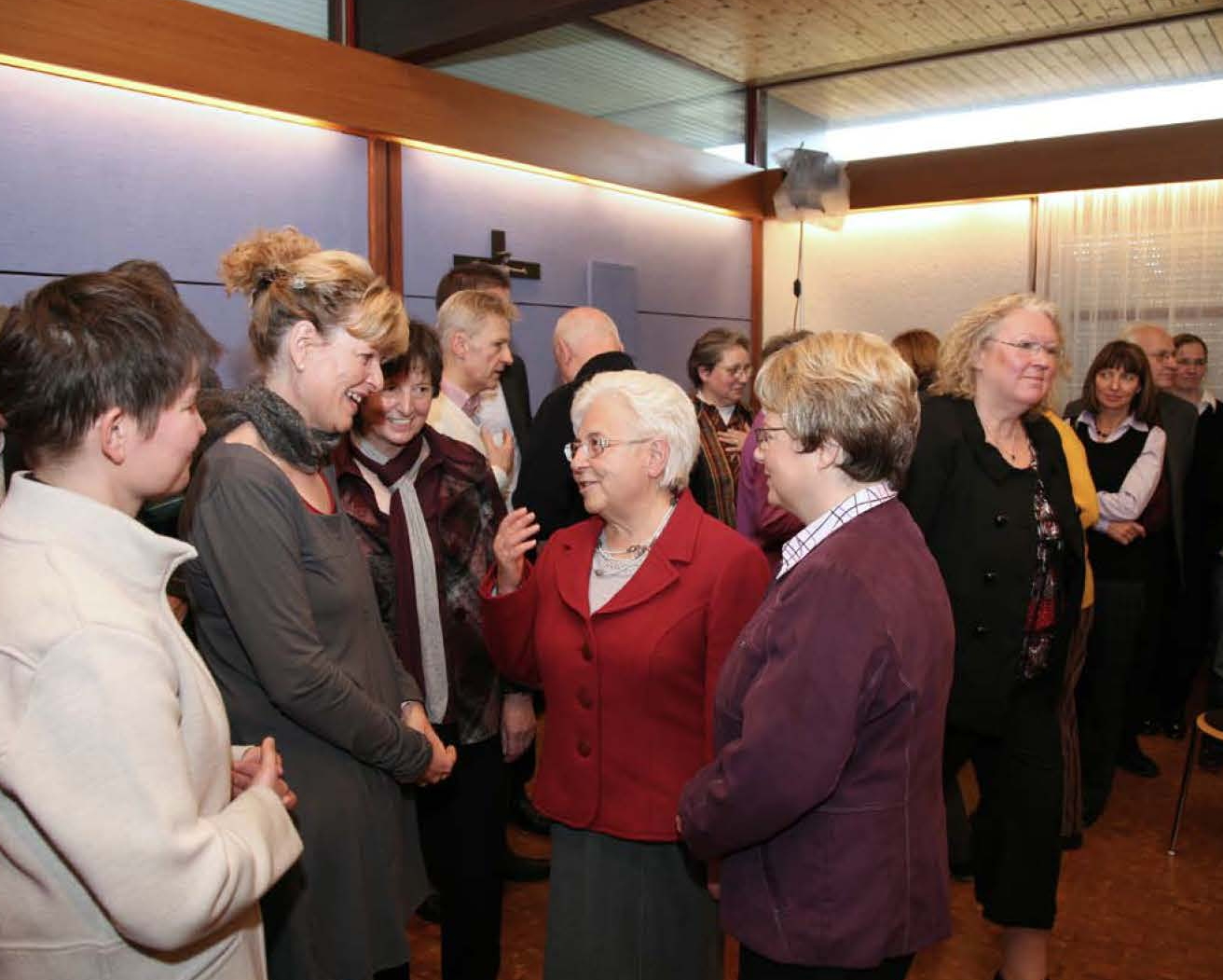
Ottmaring, Germany: María Voce during a meeting with a group from the Evangelical Church on 1 novembre 2009. Photo courtesy of Alpha y Omega

 Masaka, Kampala, Entebbe and great Lake Victoria – this is the wide territory that Henry has covered in his country, Uganda, the “pearl of Africa.” He’s gone from the village where he was born, to his economic studies at university in the capitol, to the shores of the largest lake on the continent. It is so large that it counts more than 3,000 islands. This is where the White Nile begins, which then flows into the longest river in Africa, the Nile. Everything is big in Uganda: the parks, the impenetrable forests, the nature reserves. Henry dreams big too. “At Masaka, where I went to university, I noticed how people didn’t have time to cook anymore,” he says. To resolve the problem, Henry started a business to produce meat and fish products. At just 24, together with two others his age, he started the Sseruh Food Processing Company Ltd. in Entebbe. On the other side of the world, in Argentina, another entrepreneur, Gonzalo Perrin, had already started a company some years ago: Pasticcino, which produces cookies for a number of cafeteria chains and coffee roasters. Urged on by the spirit of the Economy of Communion, Perrin moved to the Soladaridad industrial park at Mariapolis Lia, a little city of the Focolare. There he promotes a culture marked by the values of reciprocity, care for the disadvantaged and the environment.
Masaka, Kampala, Entebbe and great Lake Victoria – this is the wide territory that Henry has covered in his country, Uganda, the “pearl of Africa.” He’s gone from the village where he was born, to his economic studies at university in the capitol, to the shores of the largest lake on the continent. It is so large that it counts more than 3,000 islands. This is where the White Nile begins, which then flows into the longest river in Africa, the Nile. Everything is big in Uganda: the parks, the impenetrable forests, the nature reserves. Henry dreams big too. “At Masaka, where I went to university, I noticed how people didn’t have time to cook anymore,” he says. To resolve the problem, Henry started a business to produce meat and fish products. At just 24, together with two others his age, he started the Sseruh Food Processing Company Ltd. in Entebbe. On the other side of the world, in Argentina, another entrepreneur, Gonzalo Perrin, had already started a company some years ago: Pasticcino, which produces cookies for a number of cafeteria chains and coffee roasters. Urged on by the spirit of the Economy of Communion, Perrin moved to the Soladaridad industrial park at Mariapolis Lia, a little city of the Focolare. There he promotes a culture marked by the values of reciprocity, care for the disadvantaged and the environment. 


 Established in 1981, the International Day of Persons with Disabilities is celebrated every year on 3 December, with the aim of encouraging and promoting a more widespread and in-depth knowledge on issues concerning differently-abled people, supporting full integration in all areas
Established in 1981, the International Day of Persons with Disabilities is celebrated every year on 3 December, with the aim of encouraging and promoting a more widespread and in-depth knowledge on issues concerning differently-abled people, supporting full integration in all areas










